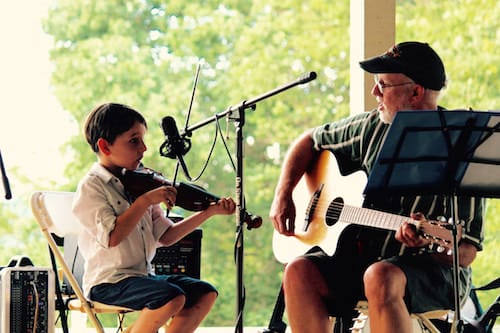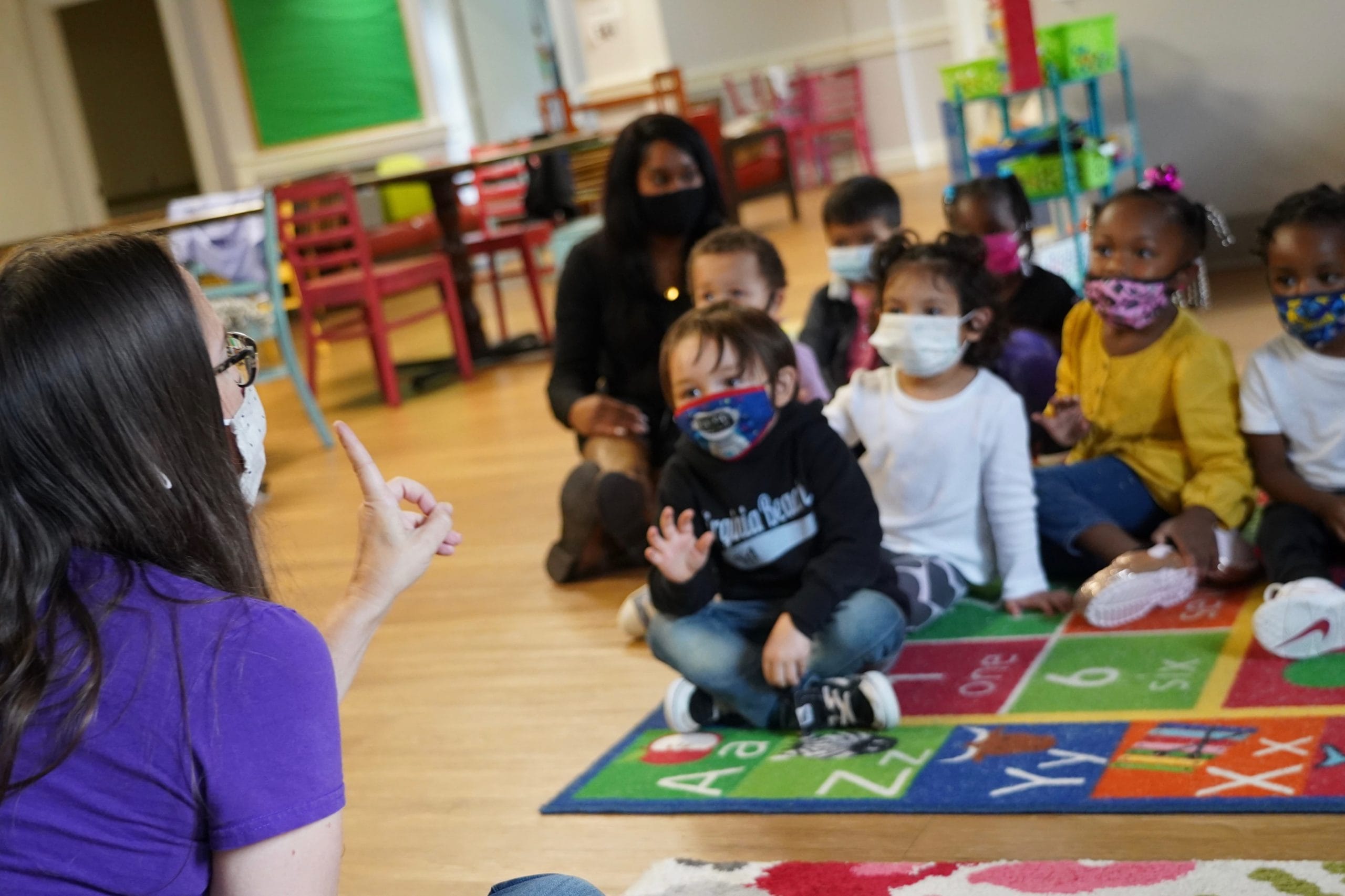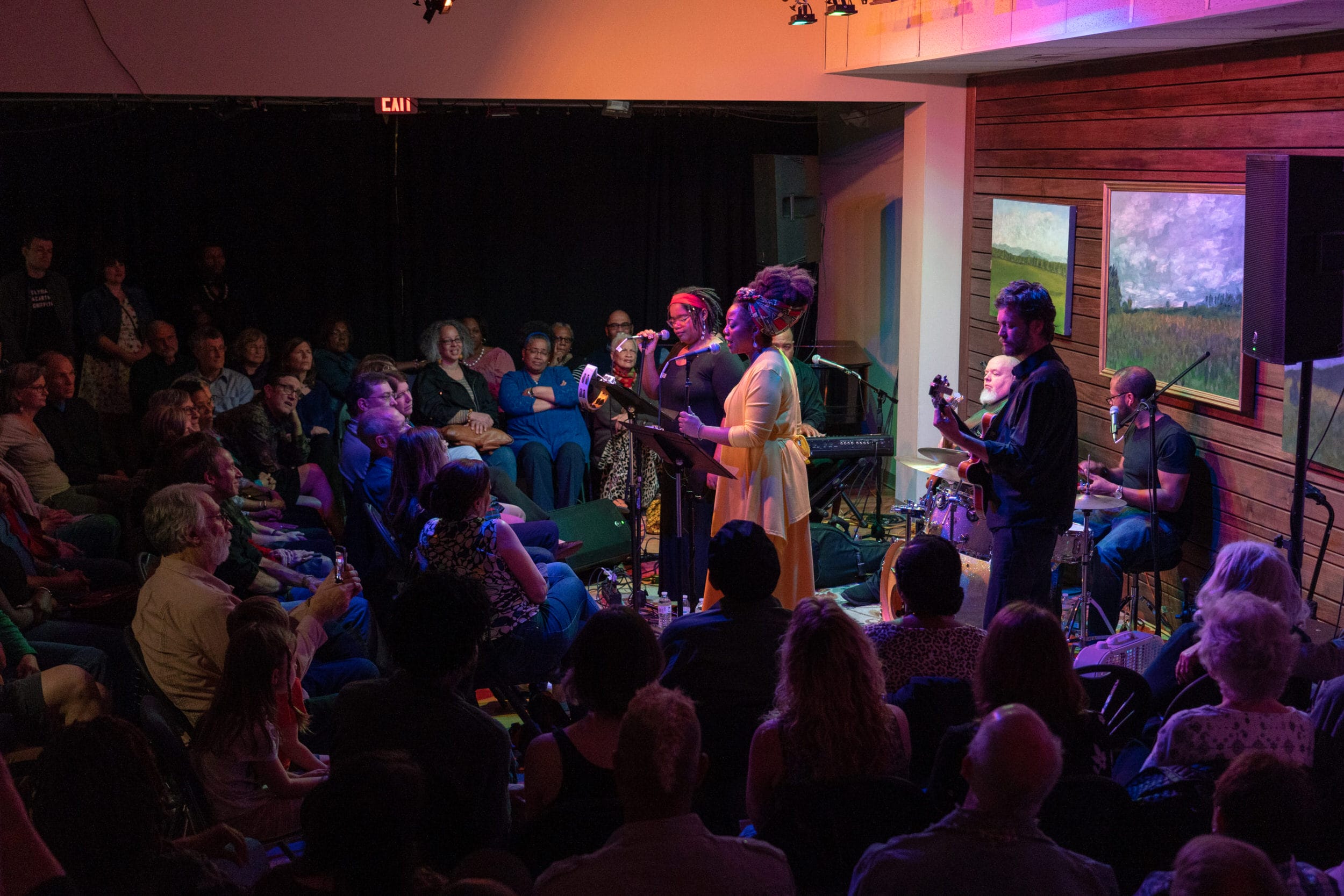“Somebody should write a song about that.”
Have you ever said those words? Well, you’re absolutely right. Somebody should. And you’re just the person to do it.
Why you?
Because you’re a curious person who notices things. You see the beauty, humor or horror in little things. You pay attention to things that most other people tune out. And because, deep down, you have the impulse to spin a yarn with a groove. You love a good song. And you like to try new things. Right?
Michael Clem (who teaches a songwriting class at The Front Porch) started writing songs soon after he first heard The Beatles.
“When I picked up the guitar at age 10, I was filled with all kinds of Lennon & McCartney wanna-be-ism,” Clem said. “That got me creating songs for my elementary school band right off the bat.”
But why write your own songs? Why not just play covers of Beatles tunes?
“There’s nothing wrong with performing other artists’ material,” Clem said. “But there’s something awfully special about creating something new.”
“I could tell someone else’s story, but I will be a lot more authentic and credible when I tell my own.”
Write just one song?
In his book How To Write One Song, Jeff Tweedy (of Wilco fame) says to start with a simple, achievable goal. Write one song. Put off any thoughts of a career as a songwriter.
Tweedy explains why in this excerpt from his book.
“To me, the difference between one song and ‘songs’ is not some cute semantic trick; it’s an important distinction, and it’s more precise about what it is you’re actually doing. No one writes ‘songs’ plural. They write one song, and then another. And it’s also a reminder of what you really want. Or what I think you should REALLY want, which is to disappear—to watch your concept of time evaporate, to live at least once inside a moment where you aren’t ‘trying’ to do anything or be anything anymore. To spend time in a place where you just are.”

Write just one song?
In his book How To Write One Song, Jeff Tweedy (of Wilco fame) says to start with a simple, achievable goal. Write one song. Put off any thoughts of a career as a songwriter.
Tweedy explains why in this excerpt from his book.
“To me, the difference between one song and ‘songs’ is not some cute semantic trick; it’s an important distinction, and it’s more precise about what it is you’re actually doing. No one writes ‘songs’ plural. They write one song, and then another. And it’s also a reminder of what you really want. Or what I think you should REALLY want, which is to disappear—to watch your concept of time evaporate, to live at least once inside a moment where you aren’t ‘trying’ to do anything or be anything anymore. To spend time in a place where you just are.”

Intrigued? The Front Porch offers a group class, led by Devon Sproule, in which students explore exercises and ideas from Tweedy’s book.
How to get in the songwriting habit
Finished your first song? Way to go!
Want to write another? Then make a commitment to engage in the process on a regular basis.
“Sitting around and waiting for inspiration is not what makes a good songwriter,” Michael Clem said. “Writers write, pure and simple.”
Imagine you’re a columnist for a newspaper, Clem said. You are paid to deliver a weekly article.
“Do you tell your editor, ‘Oh, I’m not feeling it today?’ No, you commit yourself to getting something written by the deadline. Though most of the time, there’s not a salary involved with songwriting, there are different ways to create the urgency and the deadline. Perhaps it’s an upcoming performance or a regular open mic that you attend.”
A regular open mic? Yes — like the one Clem hosts for songwriters at The Local every Monday night. Or a similar one that I host at The Center on the second Wednesday of each month. Beginners are welcome at these events!
What skills do you need to write a song?
Your want-to and your time are the only two essential ingredients. The rest of the things you might think you need can be learned, supplied by a co-writer, or done without.
Can you play a few chords on a piano, guitar or ukulele? Can you tap out a beat? Those skills are nice to have, but not essential. Plenty of hit songs have been written using the sounds and beats that come with tools such as GarageBand.
Can you play a few chords on a piano, guitar or ukulele? Can you tap out a beat? Those skills are nice to have, but not essential. Plenty of hit songs have been written using the sounds and beats that come with tools such as GarageBand.
Can you sing? Sure you can. Maybe your own voice and your own lyrics are all you really need.
When you take a songwriting course or read books on the subject, you’ll learn a bit about chord progressions and rhythmic grooves. You’ll learn about rhyme schemes and meter. You’ll learn about song forms. You’ll discover what it takes to write a catchy melody.
Most likely, you’ve already absorbed some of these things from your years of listening to music. You don’t have to know any of them before you get started.
Hidden benefits of writing a song
When you write song, you’re blazing new neural pathways in your brain. That’s good for anybody, but particularly beneficial for seniors who want to stay sharp. That’s one reason I took up songwriting shortly after I turned 60.
When you write a song, you’re expressing emotions. Perhaps you’ll take a step toward resolving some issues. Maybe your song will help someone else process their pain. Or you’ll spark a moment of joy for you and your listeners. You might even create an audible heirloom — a musical snapshot of a treasured family experience.

Finally, when you share your songs with others (or write with others), you’re broadening and enriching your social connections. That’s what The Front Porch is all about.
So, what are you waiting for?
Jim Richardson is a retired wordsmith and a Front Porch volunteer. Some of his original tunes can be found at jimrichardsonmusic.net.


Love what The Front Porch does? Learn more about our Roots & Wings outreach program here, and donate to support music education in Central Virginia. Help us connect everyone through music.

The post Why You Should Write a Song appeared first on The Front Porch.
